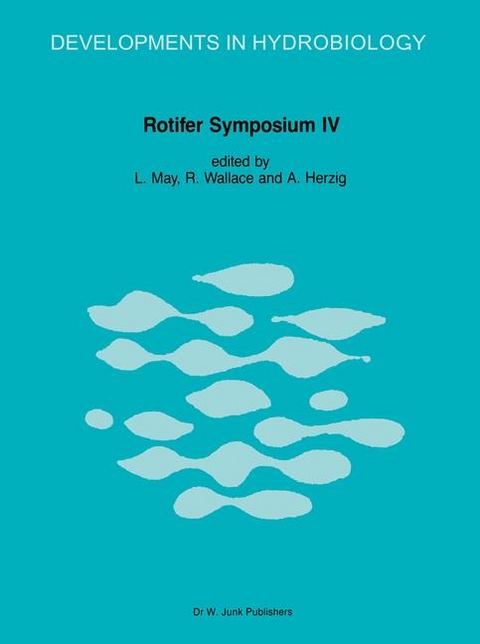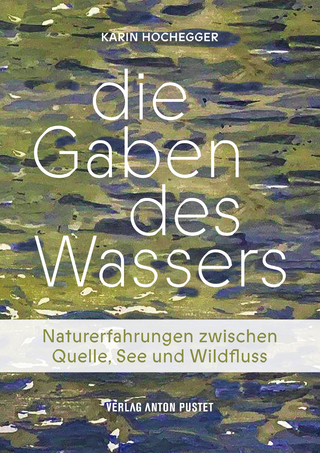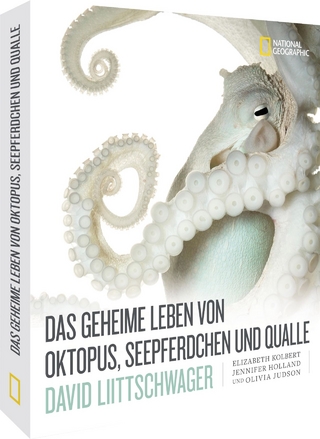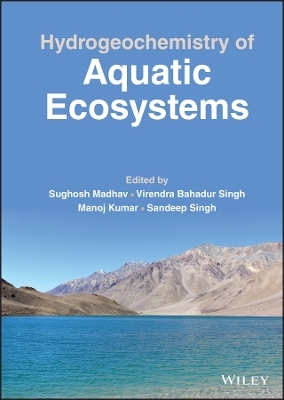
Rotifer Symposium IV
Springer (Verlag)
978-94-010-8302-7 (ISBN)
- Titel wird leider nicht erscheinen
- Artikel merken
The fourth international rotifer symposium was Wednesday afternoon a tour of Edinburgh, includ held in Edinburgh, Scotland, August 18 - 25, 1985, ing a visit to the Palace of Holyrood, was arranged. hosted by the Institute of Terrestrial Ecology. This This was followed by an evening banquet with meeting continued the tradition of holding rotifer traditional Scottish entertainment. On Thursday symposia at three-year intervals. The first an evening most participants attended a fireworks dis nouncement of the fourth meeting was circulated at play which was part of the Edinburgh Festival. Fi the end of 1983 to almost 300 people whose names nally, an excursion to Loch Lomond and the Tros appeared on the mailing list of the international sach hills was arranged for the Saturday after the newsletter, Rotifer News. In total, 68 people from meeting. 23 countries attended the meeting. It is interesting The organisers would like to thank Mr. C. J. to note that, of these 68 participants, 21 had at Place and colleagues at the Institute of Terrestrial tended the first meeting, held in Linz, Austria, Ecology for their invaluable help in organising the 1976, and 13 had attended all three previous meet meeting and preparing the symposium volume for ings. publication. We are also grateful for financial sup As in previous symposia, some research topics port from the Royal Society, the British Council were identified in advance of the meeting as being and British Petroleum (Scotland).
Bruno B?rzi?s, in memoriam, 1909-1985.- One: Taxonomy and Biogeography.- Keratella cochlearis (Gosse) in Africa.- Distribution of rotifers in African fresh and inland saline waters.- On species of the genus Lepadella (Eurotatoria: Monogononta: Colurellidae) from North-Eastern India, with remarks on Indian taxa.- The Rotifera of impoundments in Southeastern Australia.- Tasmanian Rotifera: Affinities with the Australian fauna.- Intraspecific variability of Brachionus plicatilis.- Rotifera from Northwestern Canada.- Coexistence of rotifer (Brachionus plicatilis) clones in Soda Lake, Nevada.- Rotifers from Turkey.- Distribution of Brachionus species in Spanish mediterranean wetlands.- Biometric variation in three strains of Brachionus plicatilis as a direct response to abiotic variables.- Taxonomical and ecological notes on Hexarthra bulgarica from high mountain lakes and ponds of Sierra Nevada, Spain.- Rotifer fauna of lakes and ponds over 2500 m above sea level in the Sierra Nevada, Spain, with description of a new subspecies.- Rotifer fauna in the periphyton of Karst rivers in Croatia, Yugoslavia.- Rotifer occurrence in relation to pH.- Two: Bdelloids.- Ecology of Bdelloids: How to be successful.- A bdelloid rotifer living as an inquiline in the leaves of the pitcher plant. Sarracenia purpurea.- Specificity of the alpha-tocopherol (vitamin E) effect on the lifespan and fecundity of Bdelloid rotifers.- Three: Colonial Rotifers.- Coloniality in the phylum Rotifera.- Conochilus in Lake Washington.- Four: Population Dynamics and Spatial Distribution.- The analysis of planktonic rotifer populations: a plea for long-term investigations.- The influence of sampling strategy on the apparent population dynamics of planktonic rotifers.- Abundance and distribution of pelagic rotifers in a cold, deep, oligotrophic alpine lake (Koenigssee).- Population dynamics of hypolimnetic rotifers in the Pluss-see (north Germany).- Environmental factors influencing the vertical migration of planktonic rotifers in a hypereutrophic tarn.- Comparative population dynamics of the rotifers Brachionus angularis and Keratella cochlearis.- Changes in the population dynamics of Keratella cochlearis (Gosse), Kellicottia longispina (Gosse) and Polyarthra vulgaris (Carlin) in a fertilised enclosure.- The population dynamics of Keratella cochlearis in a hypereutrophic tarn and the possible impact of predation by young roach.- Post-encounter vulnerability of some rotifer prey types to predation by the copepod Acanthocyclops robustus.- The Polyarthra escape response: Defence against interference from Daphnia.- Rotifers, cladocerans and planktivorous fish: what are the major interactions?.- Five: Aquaculture, Feeding and Nutrition.- Raising rotifers for use in aquaculture.- Production and nutritional quality of the rotifer Brachionus plicatilis fed marine Chlorella sp. at different cell densities.- The use of marine yeast (Candida sp.) and bakers' yeast (Saccharomyces cerevisiae) in combination with Chlorella sp. for mass culture of the rotifer Brachionus plicatilis.- A consideration of why mass culture of the rotifer Brachionus plicatilis with bakers' yeast is unstable.- The components of feeding behavior in rotifers.- Effects of feeding on respiration of the rotifer Brachionus plicatilis.- A laboratory study of feeding and assimilation in Euchlanis dilatata lucksiana.- The potential for population growth of Ascomorpha ecaudis.- Further nutritional studies on the rotifer Encentrum linnhei.- Six: Reproduction.- Planktonic rotifers and temperature.- Effect of algal diet and temperature on the embryonic development time of the rotifer Brachionus plicatilis in culture.- Factors influencing the occurrence of males in natural populations of Synchaeta spp..- Fertilization and male fertility in the rotifer Brachionus plicatilis.- Effect of incubation temperature on the hatching of rotifer resting eggs collected from sediments.- Seven: Ultrastructure, Biochemistry and General Methodology.- Movement in rotifers: correlations of ultrastructure and behavior.- Ultrastructure and histochemistry of the stomach of Asplanchna sieboldi.- Neuropharmacology of rotifer feeding, oviposition and anesthesia.- Combined influences of particulate and dissolved factors in the toxicity of Microcystis aeruginosa (NRC-SS-17) to the rotifer Brachionus calyciflorus.- A centrifugation method for measuring the relative density (specific gravity) of planktonic rotifers (Rotifera), with values for the relative density of Polyarthra major (Burkhardt) and Keratella cochlearis (Gosse).
| Erscheinungsdatum | 19.12.2018 |
|---|---|
| Reihe/Serie | Developments in Hydrobiology ; 42 |
| Zusatzinfo | XVI, 382 p. |
| Verlagsort | Dordrecht |
| Sprache | englisch |
| Maße | 216 x 280 mm |
| Themenwelt | Naturwissenschaften ► Biologie ► Limnologie / Meeresbiologie |
| Naturwissenschaften ► Biologie ► Ökologie / Naturschutz | |
| Schlagworte | Aquaculture • biochemistry • Biom • Ecology • Environment • Fauna • Plankton • Temperature • wetland |
| ISBN-10 | 94-010-8302-9 / 9401083029 |
| ISBN-13 | 978-94-010-8302-7 / 9789401083027 |
| Zustand | Neuware |
| Haben Sie eine Frage zum Produkt? |
aus dem Bereich


